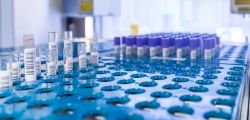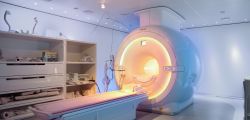Mechanisms and prevention of cancer drug resistance
Esteemed journal Pharmacological Reviews published a review manuscript titled “Aldo-Keto Reductases and Cancer Drug Resistance”, which explains one of the mechanisms of chemoresistance. This publication is a result of twenty years of successful collaboration between the group of Prof. Dr. Lanišnik Rižner from the Medical Faculty, University of Ljubljana and the group of Prof. Dr. Trevor M. Penning from the University of Pennsylvania Perelman School of Medicine, Philadelphia, USA.
The review manuscript describes the mechanisms of involvement of aldo-keto reductase enzymes (AKR) in cancer chemoresistance and presents AKR1C inhibitors as new possible drugs that could improve the efficacy of existing chemotherapeutics.

Drug resistance (chemoresistance) is the major cause of unsuccessful cancer treatment. Chemoresistance is a complex phenomenon that includes many underlying mechanisms. Aldo-keto reductase (AKR) enzymes are implicated in resistance to cancer chemotherapeutic agents either because they are directly involved in their metabolism or help eradicate the cellular stress created by these agents (e.g. reactive oxygen species and lipid peroxides). Furthermore, this cellular stress activates the NRF2 - KEAP1 pathway, and many human AKR genes are up-regulated by the NRF2 transcription factor leading to a feed-forward mechanism to enhance drug resistance. Resistance to major classes of chemotherapeutic agents (anthracyclines; mitomycin; cis-platin; anti-tubulin agents, vinca alkaloids and cyclophosphamide) occurs by this mechanism. Human AKRs are also involved in hormonal-dependent malignancies, and are up-regulated by anti-hormonal therapy providing a second mechanism for cancer drug resistance. Studies in animal models and human cell models revealed that inhibitors of the NRF2 system or pan-AKR1C inhibitors offer promise to surmount cancer drug resistance and/ or potentiate the effects of existing drugs.
ARTICLE: Trevor M. PENNING, Sravan JONNALAGADDA, Paul C. TRIPPIER and Tea LANIŠNIK RIŽNER, Aldo-keto reductases and cancer drug resistance. Pharmacological Reviews, 73, 3, 1150-1171, July 2021, https://doi.org/10.1124/pharmrev.120.000122, IF 25.468.




